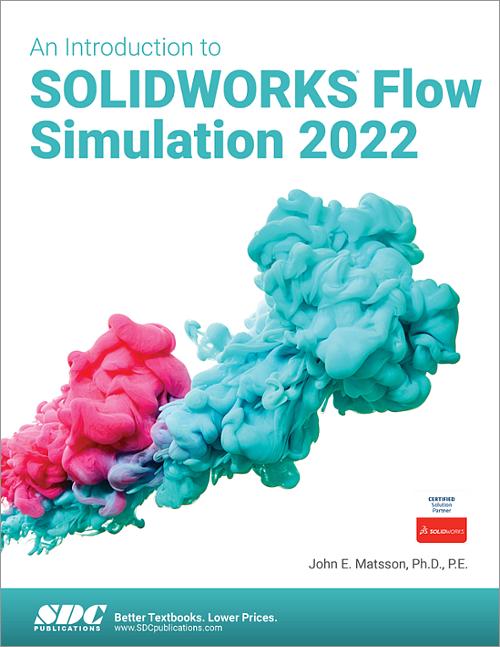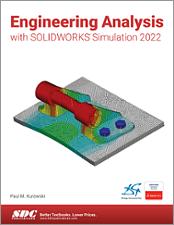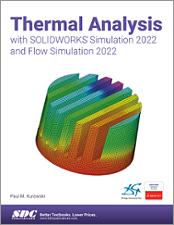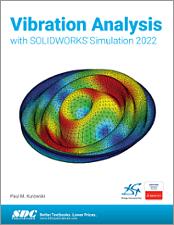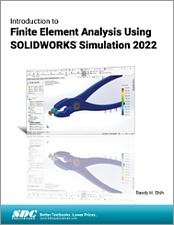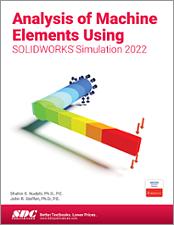An Introduction to SOLIDWORKS Flow Simulation 2022
- Description
- Contents
- Downloads
- Details
Description
Key Features
- Step-by-step tutorials cover the creation of parts, setup and calculations with SOLIDWORKS Flow Simulation
- Covers fluid mechanics, fluid flow and heat transfer simulations
- Results are compared to analytical solutions and empirical data
- This edition features a new chapter on Savonius Wind Turbines
In Detail
An Introduction to SOLIDWORKS Flow Simulation 2022 takes you through the steps of creating the SOLIDWORKS part for the simulation followed by the setup and calculation of the SOLIDWORKS Flow Simulation project. The results from calculations are visualized and compared with theoretical solutions and empirical data. Each chapter starts with the objectives and a description of the specific problems that are studied. End of chapter exercises are included for reinforcement and practice of what has been learned.
The fourteen chapters of this book are directed towards first-time to intermediate level users of SOLIDWORKS Flow Simulation. It is intended to be a supplement to undergraduate Fluid Mechanics and Heat Transfer related courses. This book can also be used to show students the capabilities of fluid flow and heat transfer simulations in freshman and sophomore courses such as Introduction to Engineering. Both internal and external flow problems are covered and compared with experimental results and analytical solutions. Covered topics include airfoil flow, boundary layers, flow meters, heat exchanger, natural and forced convection, pipe flow, rotating flow, tube bank flow and valve flow.
Covers these features of SOLIDWORKS Flow Simulation 2022:
- Animations
- Automatic and Manual Meshing
- Boundary Conditions
- Calculation Control Options
- External and Internal Flow
- Goals
- Laminar and Turbulent Flow
- Physical Features
- Result Visualizations
- Two and Three Dimensional Flow
- Velocity, Thermodynamic and Turbulence Parameters
- Wall Thermal Conditions
- Free Surfaces
Table of Contents
- Introduction
- Flat Plate Boundary Layer
- Flow Past a Sphere and a Cylinder
- Flow Past an Airfoil
- Rayleigh-Bénard Convection and Taylor-Couette Flow
- Pipe Flow
- Flow Across a Tube Bank
- Heat Exchanger
- Ball Valve
- Orifice Plate and Flow Nozzle
- Thermal Boundary Layer
- Free Convection on a Vertical Plate and a Horizontal Cylinder
- Swirling Flow in a Closed Cylindrical Container
- Flow Past a Model Rocket
- Draining of a Cylindrical Tank
- Ahmed body
- Savonius Wind Turbine
Index
Downloads
For additional information on downloading, unzipping, and using these files visit the downloads section on our Frequently Asked Questions page.
Product Details
| Publisher | SDC Publications |
| Authors | John E. Matsson Ph.D., P.E. |
| Media Types | Print Book, eBook |
| Primary Languages | English |
| Published | July 19, 2022 |
| User Level | Beginner - Intermediate |
| Pages | 376 |
| Binding | Paperback |
| Printing | Black and White |
| Print ISBN | 978-1-63057-480-2 |
| Print ISBN 10 | 1630574805 |
| eBook ISBN | 978-1-63056-703-3 |
